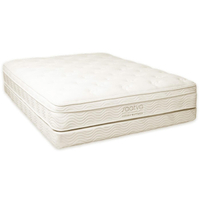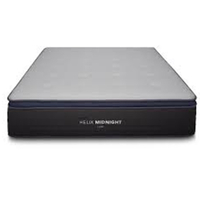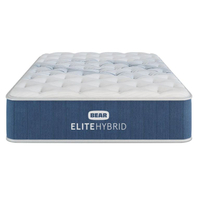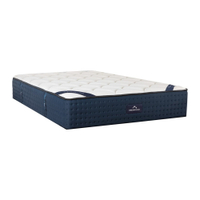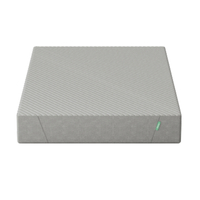Is your mattress past its prime? Here's why Black Friday is the right time to replace it
Nothing lasts forever, not even a good mattress — but there's good news if you need something new right now
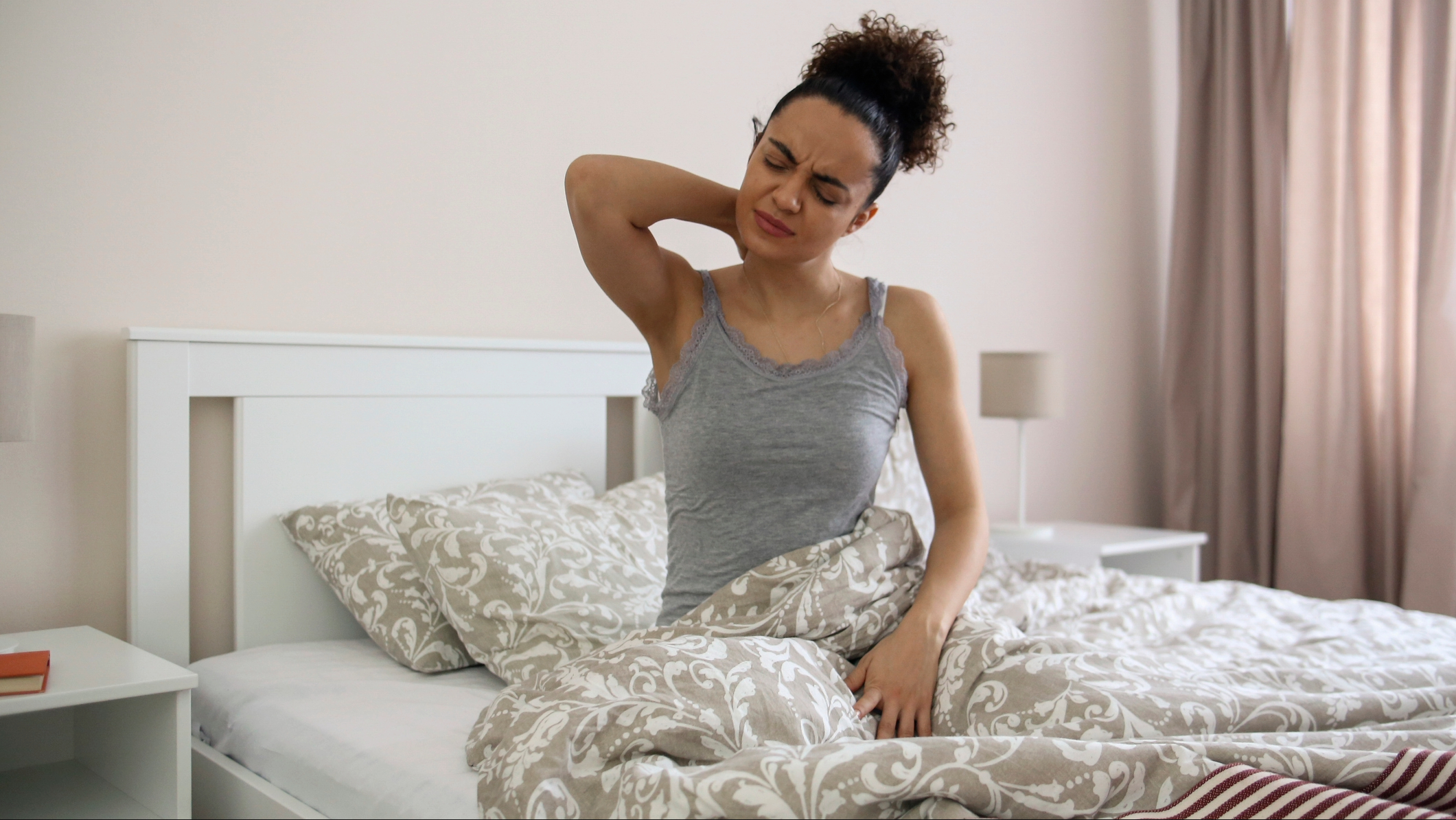
How often should you replace your mattress? Despite the growing prevalence of 'forever' warranties, no mattress lasts forever. The best time to replace your mattress is when it's no longer providing you with quality, restorative sleep — but if you're a stickler for a good deal, then it's worth waiting until Black Friday if possible. (Fortunately for you, that's soon!)
Even the best mattresses will one day need to be replaced. Here, we'll walk you through the signs to look for to help you know when it’s time to bid your mattress goodnight for the last time. And if that time is now, you're in luck, as Black Friday mattress sales are just about to kick off.
How often should you replace your mattress?
The Better Sleep Council recommends changing your mattress every seven years. You'll find slightly different advice from expert to expert, but most agree on a window between six to 10 years, depending on how often the mattress is used and what level of quality it is.
However, as the specialists at the Better Sleep Council point out, your body changes over time, and your need for comfort and support increases as you age. "Your body may be ready for a new mattress before the seven-year mark," they say, "so listen to what it’s telling you." If you keep your mattress after 10 years, visible signs of wear will become more apparent — think sagging foam or creaky coils.
The good news is that if you do need to invest in a new mattress, most of the leading brands run sales throughout the year. The strongest offers tend to happen around major holidays and shopping events like Black Friday, Cyber Monday, Presidents' Day, and Memorial Day.
Plus, you may not have to completely replace your mattress outright. The best mattress toppers can make your current bed feel more comfortable at a fraction of a cost of a full-fledged mattress. But only consider this option if your mattress is in otherwise good shape.
6 signs it's time to replace your mattress
The National Sleep Foundation recommends adults get between seven and nine hours of quality sleep a night, but 39% of US adults aged 45 to 64 report sleeping fewer than seven hours. If you experience symptoms of sleep deprivation in spite of your best efforts to follow good habits – like cutting caffeine after dinner or leaving your tech gadgets out of the bedroom – your mattress could be to blame.
Sign up to get the BEST of Tom's Guide direct to your inbox.
Get instant access to breaking news, the hottest reviews, great deals and helpful tips.
So is it time to change your mattress? If any of the issues below sound familiar, then yes, it probably is...
1. "My mattress is six to eight years old"
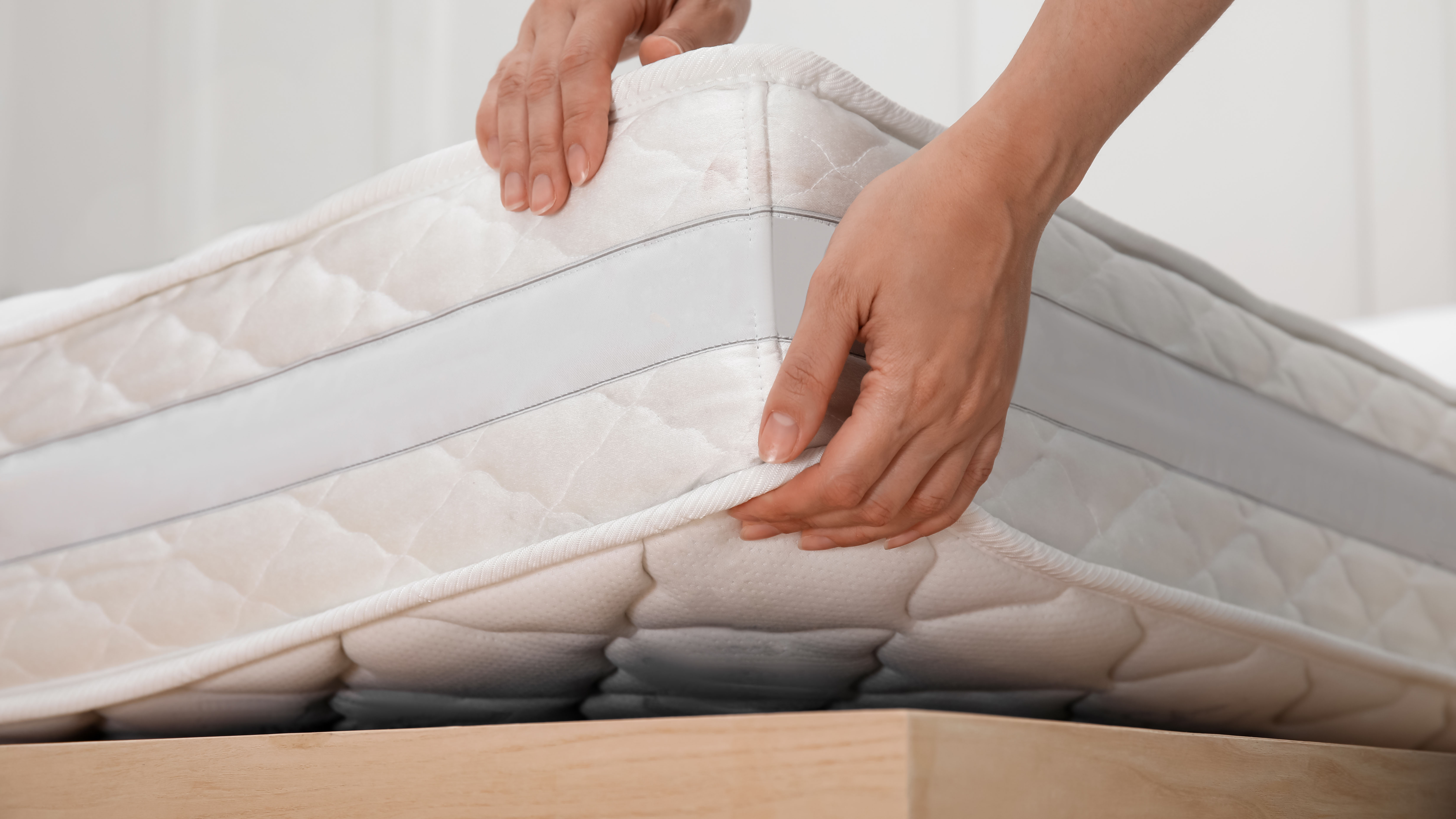
There are a variety of factors involved in determining how often you should change your mattress. How long a mattress lasts depends a lot on the quality of the materials and overall build.
Cheap mattresses are usually made with less robust materials that simply won’t stand the test of time for as long as their more expensive counterparts. Lower-quality innerspring and all-foam mattresses tend to submit to body impressions and can begin to sag more quickly than other types.
Latex is the most durable, as these mattresses can last between 15 and 25 years. That's one of the largest differences when it comes to memory foam vs latex; also keep in mind that latex is more expensive than memory foam and doesn't feel as soft.
Your weight can play a part, too. If you are a larger build - or you co-sleep with someone who is - this can impact the lifespan of the mattress. Similarly, the care and attention you pay to your sleep station can determine its lifespan. Using a mattress protector and rotating your mattress (if recommended by the manufacturer) both contribute towards a longer life.
2. "My mattress is lumpy or saggy"
If there’s a dent in your mattress that’s not going away, it's a sure sign that it’s time for a refresh. All mattress types can break down over time: springs can wear, and foam can break down and sag. This can happen both in the area where you sleep, as well as around the edges of the mattress. But an uneven mattress will cause aches and pains, and is a clear signal that it's time to replace your mattress.
3. "I wake up stiff and uncomfortable"

Similarly, if you're waking up feeling like you’ve just had a workout rather than a restorative slumber, this could be the result of using a tired mattress. That's particularly the case if you wake up stiff or sore, and then the discomfort alleviates after some stretching and into the morning.
When seeking out a new mattress, be aware that firm models aren't always the solution to uncomfortable limbs or back pain. For most people, a medium-firm will be just what they need. However, firmness is subjective so make sure to find a bed with a mattress trial that'll allow you to try it at home for at least 30 days. (The average trial length is 100 nights, with some brands offering a full year.)
4. "My back feels misaligned in bed"
It’s important to consider how you sleep – are you out for the count on your back, splayed out on your stomach or curled on your side? Whichever angle best lulls you off to sleep, it’s vital that your mattress is supportive to your body.
When sleeping on your back or front, the natural ‘s’ curve of your back should be evident. If it’s flattened out this will put pressure on your back, showing that your mattress isn’t receptive enough to your body. Consider one of the best mattresses for back pain if you're seeking restful nights and ache-free mornings. If you prefer to sleep prone, make sure you have one of the best mattresses for stomach sleepers.
If you lay on your side, your spine should maintain a straight line all the way from your neck to your bottom. If you can fit your hand between your body and the mattress surface, this shows that it's not sufficiently supportive for that position. In that case, take a look at the best mattresses for side sleepers.
5. "I lost or gained weight (or added a sleeping partner)"
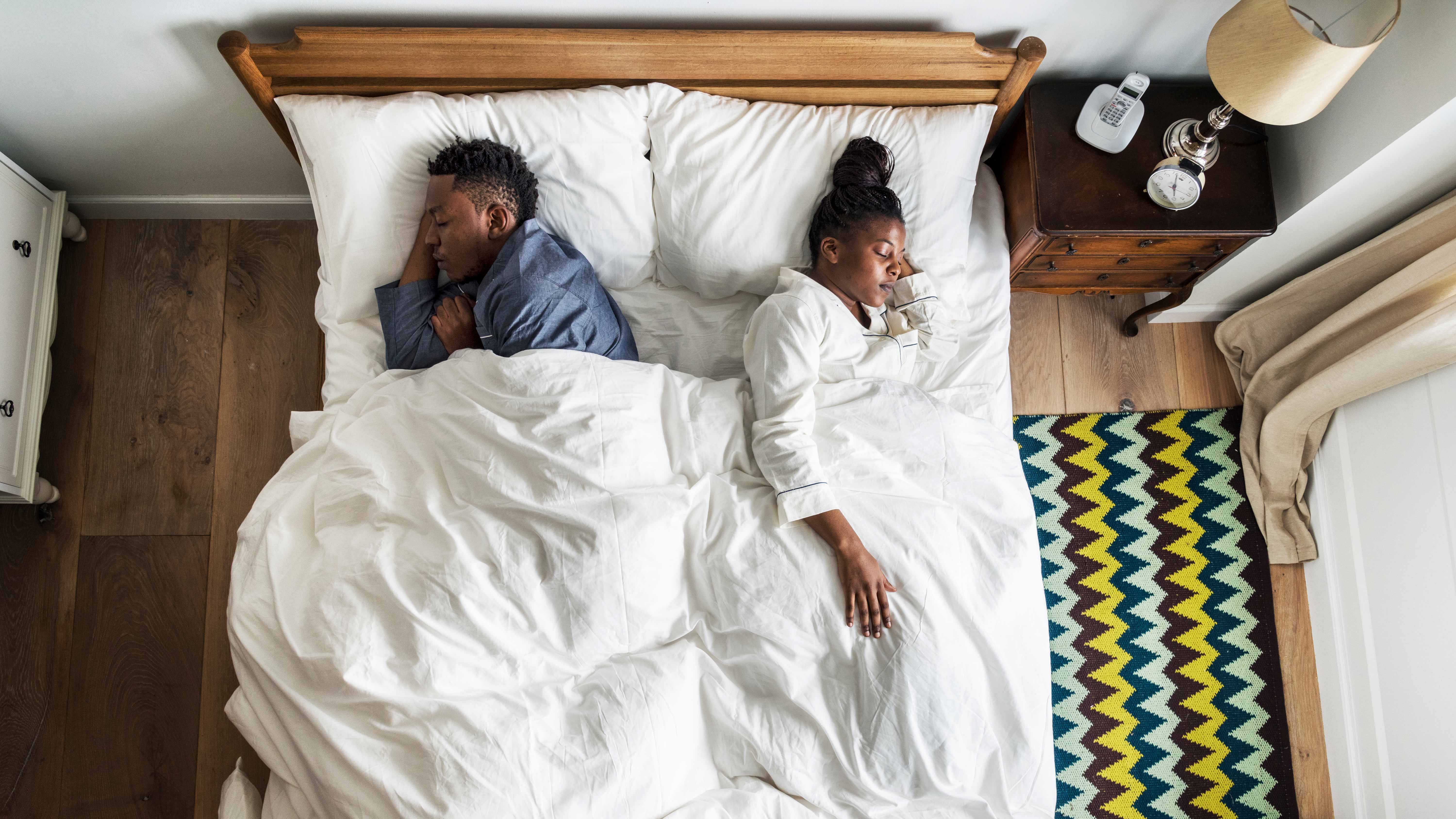
A mattress needs be attuned to your body for optimal sleep. Heavier bodies cause deeper wear and tear on a mattress, so if you've gained weight, or a new co-sleeper, then it's essential to consider a mattress that can accommodate you both. Try to avoid the mistakes couples make when buying their first mattress.
Similarly, if you have lost weight, your mattress may no longer be able to support your body as it used to. Upgrading at this point will help to promote good sleep, but if your mattress is in otherwise fine condition, adding a soft mattress topper will be a sufficient fix.
6. "My allergies or asthma are getting worse"
Mattresses can be a haven for dust mites. On average, we shed around a pound of dead skin cells each year and your mattress takes the brunt of a significant proportion of this. This creates an optimal environment for bacteria to grow and dust mites to thrive. If you notice an increase in your asthma or allergies, this could be a result of accumulated dust in the mattress, or worse still - the proteins in dust mite feces.
You can of course take steps to mitigate this issue by vacuuming your mattress regularly and cleaning your mattress every six months. But if this doesn’t help, or it's clear your bed has seen much better days, a new mattress will be just what the doctor ordered.
Consider upgrading to an organic mattress if allergies keep you up at night. These eco-friendly beds are made with natural, hypoallergenic materials that'll minimize triggers for allergic and asthmatic reactions.

Why is Black Friday a good time to replace a mattress?
Mattress deals happen year-round, but some sales are stronger than others. Usually, brands present their best offers during Black Friday. Not only are the discounts deeper, but MSRPs are at their lowest points, as well. Bundle deals that include free pillows and/or bed sheets are common around this time, too.
Black Friday mattress deals have been running since late October for some brands, but even then those offers are likely to improve as we approach the day itself, which falls on November 29 this year.
If you're snooze through Black Friday, Cyber Monday mattress sales are often a continuation of deals from over the weekend. In some cases, the prices may even be better on Cyber Monday than they were on Black Friday, but that's rare.
5 Black Friday mattress deals to replace your bed
Nod your head at one or more of the points above? Then it's time to go mattress shopping. If you've had your current bed for a long time and don't know where to start, heed these pro tips on how to buy a mattress online.
Once you feel confident about what you need, check out our favorite early Black Friday mattress deals below...
1. Saatva Classic mattress: was from $1,395 now from $995 at Saatva
Exclusive $400 off! The Saatva Classic remains our top overall mattress for most people. This beautifully-handcrafted innerspring hybrid comes in three firmness levels and two height profiles so you can tailor it to your comfort. A specialized Lumbar Zone promotes proper alignment to help prevent back pain, while the dual-coil construction gives it plenty of bounce and airflow. Use our exclusive discount link to cut $400 off, which brings a queen-size Saatva Classic to $1,695 (tied as the lowest price we've seen this year). The extras are enticing, too, with free White Glove Delivery, a one-year trial, and a lifetime warranty.
Read more: Saatva Classic mattress review
2. Helix Midnight Luxe mattress: was from $1,373 now from $1,002 with code TOMS27 + free gifts at Helix Sleep
Exclusive 27% off! The Midnight Luxe is our favorite side sleeper mattress, but we find this medium-firm hybrid remarkably comfortable for back sleeping, as well. It looks and feels luxurious — less like your typical bed-in-a-box. Optional upgrades include a GlacioTex cover (for hot sleepers) and an ErgoAlign foam layer (for back pain). Use our code TOMS27 for 27% off, dropping a queen-size Midnight Luxe to $1,732 (was $2,373). While we've seen the mattress alone for less this year, it's still a solid value when you factor in the free pillows, sheets, and mattress protector.
Read more: Helix Midnight Luxe review
3. Bear Elite Hybrid mattress: was from $1,893 now from $1,231 + 2 free pillows at Bear
35% off! This is your chance to get our top-ranked cooling mattress at one of the best prices it's ever been. Like the Saatva above, the Bear Elite comes in three firmness levels and has a reinforced center for back pain relief. If night sweats keep you up at night, we recommend upgrading to the Celliant Infused cover ($195), but the standard cover includes phase change materials (PCM), which also helps with cooler sleep. Right now, a queen-size Bear Elite goes for $1,499 (was $2,305), which is standard, but we have a feeling we'll see a 40% discount closer to Black Friday, just like we did during Memorial Day weekend.
Read more: Bear Elite Hybrid mattress review
4. DreamCloud Hybrid mattress: was from $1,130, now from $419 at DreamCloud
Up to 50% off! The DreamCloud is our best mattress-in-a-box overall for delivering a luxurious sleep experience on par with the likes of the handcrafted Saatva at a far lower price. Despite a firmer bed feel than you might expect, the DreamCloud Hybrid still delivers loads of contouring for your back and joints — provided you allow yourself time to break it in. (It does come with a one-year trial.) This is the standard offer, but a queen-size DreamCloud Hybrid for $665 is still impressive, especially compared to the cost of its luxury rivals. Free bedding is no longer included, but you can add a heavily-discounted sheets and pillows bundle if you want.
Read more: DreamCloud mattress review
5. Siena Memory Foam mattress: was from $529 now from $189 at Siena
Up to 60% off! Honestly, ignore the MSRP (or 'total value,' as it's called). The Siena has never been sold at full price, and this early Black Friday offer is one of the strongest we've ever seen for this budget memory foam mattress. A queen-size is $379 after regularly going for $399. The design has changed slightly since we tested it, but it has a build similar to its popular sibling, the Nectar. It won't hug your body like a typical foam mattress, so we recommend it most for back and front sleepers who don't need loads of contouring. At this price, buy one for every bedroom in your house! You also get a 180-night trial with free shipping and returns.
Read more: Siena Memory Foam Mattress review
Don't overlook what you're resting your head on at night, either. The best pillows can improve your sleep in a significant way. Fortunately, you'll be able to find discounts on all sorts of pillows during Black Friday bedding deals.

Based in Philadelphia, USA, freelance writer and editor Alison Barretta has been sharing buying advice and retail news for over 15 years. Since 2020 she's been helping Tom's Guide expand its robust library of sleep content by researching the latest trends, speaking with renowned experts, and going behind the scenes at Saatva, Casper, Sleep Number, Tempur-Pedic, and 3Z Brands. Alison has reviewed everything from budget memory foam mattresses and luxurious innerspring beds to immersive sound pods and $7,000 smart beds that automatically adjust to your every move. When she isn't reviewing mattresses or searching for great deals to save you money, Alison can be found practicing yoga and martial arts, experimenting with recipes, getting too invested in the Philadelphia Flyers, and snoozing with her cat / assistant mattress tester Alex.
- Adam MarshallContributor
